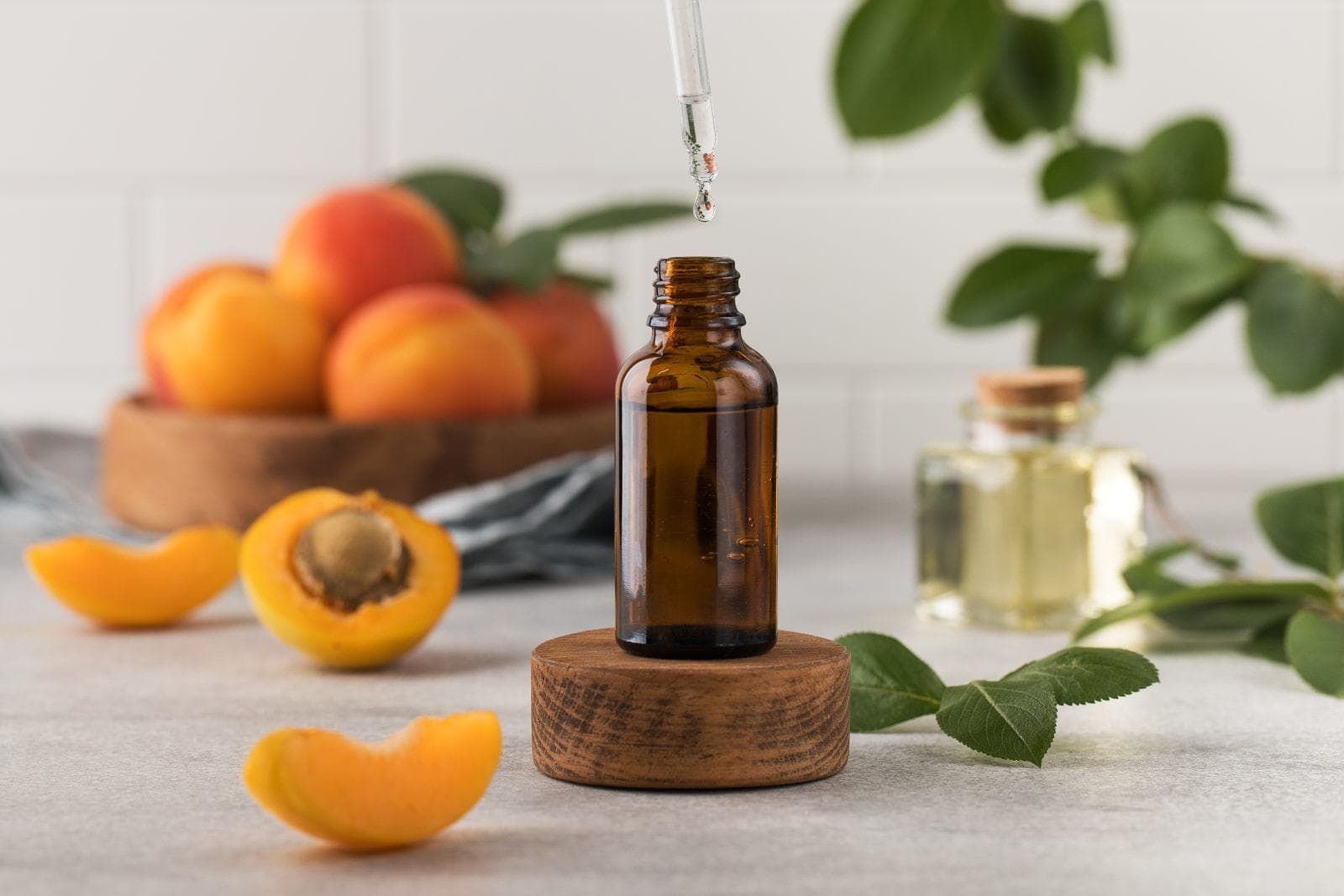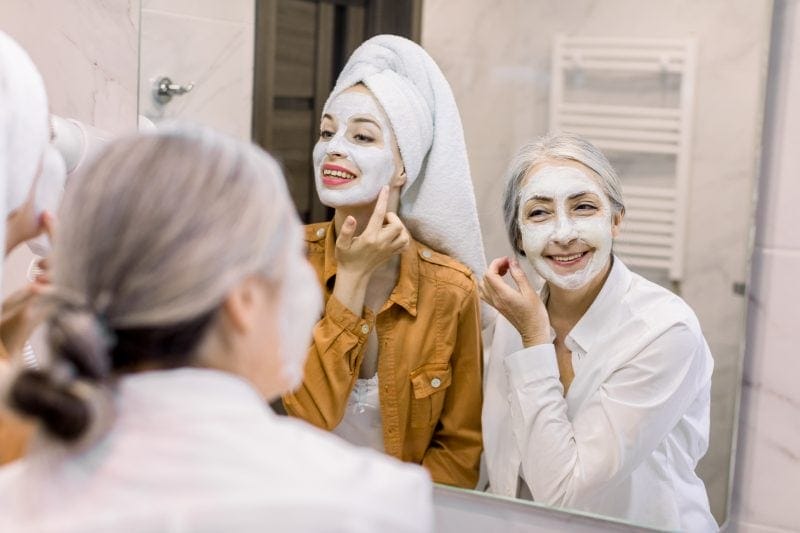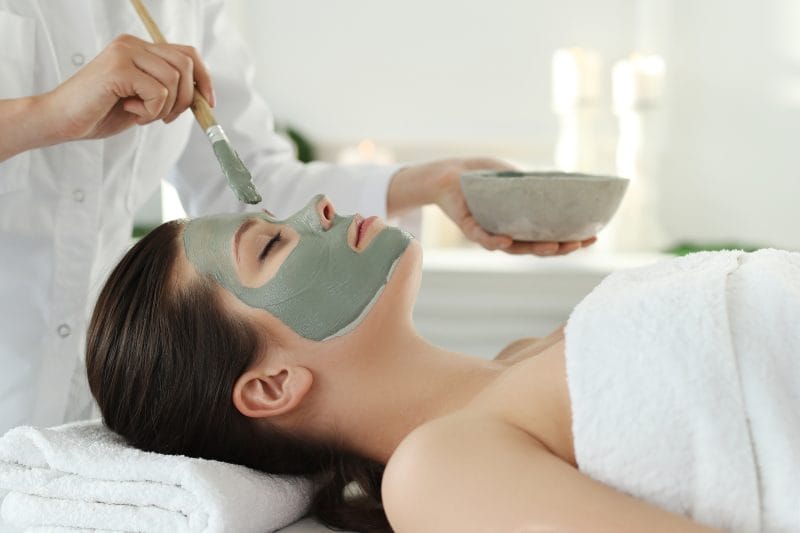Professional Skincare, Skincare
The Top 5 Antioxidants you should be using in your skin care
Antioxidants are the heroes of skincare. They fight free radicals and other cell-damaging compounds, preventing aging and skin damage. But with so many different antioxidants to choose from, which should you use? Which are the best antioxidants for your skin? Let’s look at the most effective ones…
Vitamin C
Vitamin C is one of the best antioxidants for skin, because it can brighten, lighten, and help reduce the appearance of dark spots and wrinkles. Vitamin C is a potent antioxidant that helps protect your skin from harmful UV rays and environmental damage. Because of this, vitamin C can help improve the appearance of sun damage, wrinkles, and hyperpigmentation. Vitamin C is also known to help with collagen production, which results in firmer, more youthful-looking skin. Vitamin C serums are a popular skincare product, and are usually applied before the moisturizer step, or applied as a spot treatment. Even though Vitamin C is a powerful antioxidant, it degrades quickly when exposed to light and air, so it can only be used in topical skincare products. Make sure the product you’re using has a high percentage of vitamin C, and store it in a cool, dark place away from direct sunlight. Vitamin C is great for all skin types, but the best skincare regimen with vitamin c will depend on your skin type. Dry skin can benefit from vitamin c serums to help hydrate and plump up the skin. Oily skin can do well with vitamin c serums to help control oil production.
Vitamin E
Vitamin E is one of the oldest, most effective antioxidants for skin. This vitamin works to reduce the appearance of wrinkles and fine lines and is also a powerful antioxidant that protects the skin from free radical damage. Vitamin E serums can be used to improve the texture and appearance of aging skin and has been shown to improve skin hydration and firmness. It’s also been shown to reduce the appearance of wrinkles and dark spots. Vitamin E is safe, non-toxic, and effective, making it a great ingredient to include in your skincare routine. Vitamin E is typically combined with other antioxidants in skincare products, such as Vitamin C, CoQ10 and green tea extract. Vitamin E is an antioxidant that can be found in many foods, such as nuts and seeds, avocados, broccoli, and leafy greens. It’s also commonly used in skincare products, including creams, serums, and eye creams. Vitamin E is safe for all skin types and can help to protect the skin from environmental damage.
Coenzyme Q10 (CoQ10)
CoQ10 is a powerful antioxidant that protects the skin from aging and environmental damage. It’s also known as an effective anti-aging skincare ingredient that can help prevent wrinkles and reduce sun damage. CoQ10 is a naturally occurring chemical found in the body, and it’s also found in many skincare products, making it an effective antioxidant. CoQ10 is best known for its ability to reduce the appearance of fine lines and wrinkles. It’s especially helpful for those with aging or sun damaged skin, as it works to reduce the appearance of fine lines, uneven texture, and hyperpigmentation. CoQ10 can also protect the skin from further damage by acting as an antioxidant. CoQ10 can be found in many skincare products, including serums, creams, and anti-aging treatments. It’s also available in supplement form, which can be applied topically and absorbed by the skin. CoQ10 is effective for all skin types, but the best skincare routine with CoQ10 will depend on your skin type. Normal skin can do well with CoQ10 serums to help prevent wrinkles and protect the skin from further damage. Dry skin can benefit from these serums to help hydrate and plump up the skin. Oily skin can do well with CoQ10 serums to help control oil production.
Green tea extract
Green tea extract is one of the best antioxidants for skin. It’s been used for centuries in Chinese medicine as a medicinal treatment. Green tea extract is a potent anti-aging ingredient that protects the skin from environmental damage. Studies have shown that green tea extract can help reduce UV damage and is a great antioxidant to help prevent wrinkles and age spots. Green tea extract has been shown to have similar effects as retinol, making it a great alternative for those who are sensitive to retinol but want the same benefits. Green tea extract is often found in anti-aging serums and creams and can be applied as a spot treatment to targeted areas like the under-eye area, to help reduce puffiness and the appearance of wrinkles. Green tea extract is safe for all skin types and is commonly used in skincare products, such as creams, serums, and eye creams. It’s also available in supplement form that can be applied topically and absorbed by the skin. The best skincare routine with green tea extract will depend on your skin type. Normal skin can do well with green tea extract serums to help protect the skin from environmental damage. Dry skin can benefit from these serums to help hydrate and plump up the skin. Oily skin can do well with green tea extract serums to help control oil production.
Alpha lipoic acid (ALA)
Alpha lipoic acid (ALA) is one of the best antioxidants for skin. It’s an effective anti-aging ingredient that’s often used in skincare products, such as creams and serums, to help reduce the appearance of wrinkles and uneven texture. ALA has a very similar function to vitamin C and is often used alongside it in skincare products. ALA works as an antioxidant to help protect the skin from UV damage and is also known to help fight signs of aging such as wrinkles and uneven texture. ALA can be found in many skincare products, including serums, creams, and as a standalone product that can be applied topically. It’s also often added to anti-aging face masks and other beauty products. ALA is safe for all skin types and can help to protect the skin from environmental damage. The best skincare routine with ALA will depend on your skin type. Normal skin can do well with ALA serums to help protect the skin from environmental damage. Dry skin can benefit from these serums to help hydrate and plump up the skin. Oily skin can do well with ALA serums to help control oil production.
Berry extracts
Berry extracts, such as blueberry and raspberry extracts, are one of the best antioxidants for skin. Berry extracts are commonly found in skincare products to help reduce the appearance of fine lines and wrinkles and protect the skin from UV damage. Berry extracts are also rich in antioxidants that help to fight free radicals and protect the skin from environmental damage. Berry extracts have strong anti-aging properties and have been shown to improve the texture and appearance of aging skin. They are commonly found in serums, creams, and even eye creams, where they can help reduce puffiness and dark circles. They are also commonly added to face masks, and other beauty products such as hair care and face washes. Berry extracts are safe for all skin types and can help to protect the skin from environmental damage. They are highly concentrated, which means that a little goes a long way when it comes to using them in skincare products, making them a great antioxidant to incorporate into your skincare routine. The best skincare routine with berry extracts will depend on your skin type. Normal skin can do well with berry extracts serums to help reduce the appearance of fine lines and wrinkles. Dry skin can benefit from these serums to help hydrate and plump up the skin. Oily skin can do well with berry extracts serums to help control oil production.
Conclusion
Antioxidants are the heroes of skincare. They fight free radicals and other cell-damaging compounds, preventing aging and skin damage. But with so many different antioxidants to choose from, which should you use? Vitamin C is one of the best antioxidants for skin, because it can brighten, lighten, and help reduce the appearance of dark spots and wrinkles. Vitamin C is a potent antioxidant that helps protect your skin from harmful UV rays and environmental damage. Because of this, vitamin C can help improve the appearance of sun damage, wrinkles, and hyperpigmentation. Vitamin C is also known





